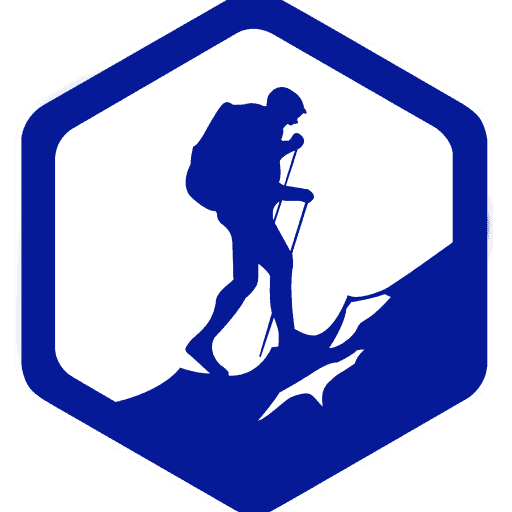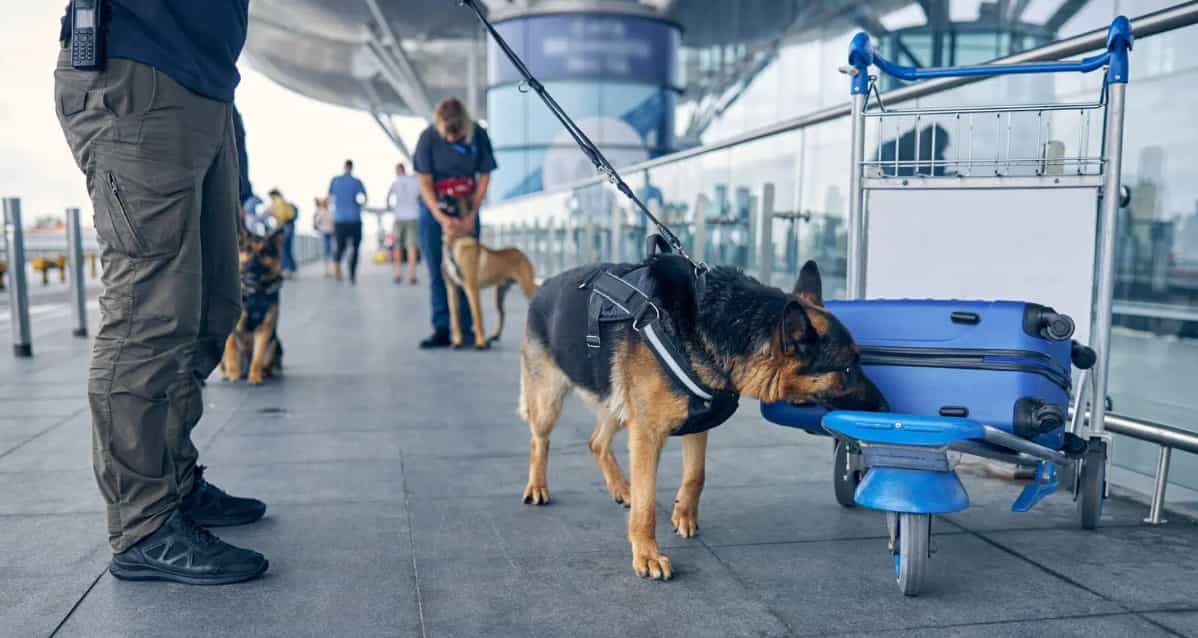Have you ever wondered if your checked bags get searched for drugs at the airport?
Well, we’ve got the answers you’ve been seeking! In this revealing blog post, we’ll delve into the truth behind drug screenings for checked bags. From the different methods used to the frequency of inspections, we’ll bring clarity to this curious topic.
So, buckle up and get ready for an eye-opening journey through airport security protocols. Get ready to separate fact from fiction and gain a deeper understanding of what really happens to your checked bags when it comes to drugs!
Contents
Do Checked Bags Get Searched For Drugs
Are you looking to travel by plane soon but worried about what happens to your checked bags? Perhaps you wonder if it gets searched one more time even after going through security. As passengers, we entrust our belongings to the airline industry, assuming they will be handled with care.
However, questions about security and the possibility of drugs being smuggled through checked bags often arise.
In this section, we’ll explore this subject more and discover the measures taken by airports to ensure passenger safety and prevent illegal drug trafficking. Find out if checked bags are searched for drugs or not.
1. Understanding Security Measures
Airports are responsible for the safety of millions of passengers each day, making security a top priority. The threat of drugs being transported via commercial flights poses a significant risk, not only to individuals but to the overall security of countries. To combat this, strict security protocols have been implemented to prevent illegal substances from entering or leaving the country.
2. X-ray Scanners and State-Of-The-ArtTechnologies
One of the primary tools used in the screening process is the X-ray scanner. Checked bags pass through these machines to create detailed images of their contents. This technology helps security personnel identify any suspicious or prohibited items, including drugs. X-ray scanners can detect various substances, ranging from organic materials to synthetic drugs, providing airport authorities with a valuable tool in their fight against drug smuggling.
3. Manual Baggage Inspections
In addition to X-ray scanners, airports may conduct manual inspections of selected bags. This process involves physically opening and examining the contents of the luggage. While not all bags are manually inspected, random or suspicious cases might undergo this secondary screening. Trained security personnel meticulously search for hidden compartments, false bottoms, or any signs of drug concealment.
4. Canine Units and Their Role
Canine units, consisting of highly trained drug-sniffing dogs, play a vital role in detecting drugs at airports. These dogs possess an incredible sense of smell and can identify even the most well-concealed substances. They are deployed strategically, either in designated inspection areas or to conduct random searches. If a dog signals the presence of drugs in a particular bag, it is flagged for further inspection.
4. Collaboration with Law Enforcement Agencies
Airport security agencies often collaborate closely with local law enforcement agencies to combat drug trafficking. This partnership allows for the sharing of intelligence, implementation of joint operations, and the prosecution of offenders. When necessary, law enforcement officers may be present at airports to assist with the identification and apprehension of individuals involved in drug smuggling.
5. Passenger Profiling and Behavioral Observation
Airport security personnel are trained to identify suspicious behavior that may indicate drug smuggling. Techniques such as passenger profiling and behavioral observation help them identify high-risk individuals. Factors such as nervousness, excessive sweating, inconsistent statements, or unusually heavy bags may trigger additional scrutiny. While these techniques are effective in enhancing security, they are subject to rigorous training and guidelines to prevent any form of discrimination.
What Happens When Checked Bags Were Detected To Contain Drugs
When checked bags are detected to contain drugs, the following procedures typically take place:
1. Airport security personnel immediately notify law enforcement authorities, such as the local police or drug enforcement agencies, about the discovery.
2. The bag is securely held in a designated area, ensuring that it remains under strict supervision until law enforcement officials arrive.
3. Law enforcement officers, specialized in drug enforcement, take over the case. They conduct further investigations, which may include examining the bag, collecting evidence, and questioning the individuals associated with the bag.
4. If the investigation confirms the presence of drugs and establishes that an individual is responsible for the bag, legal proceedings are initiated. The person involved may face criminal charges related to drug possession, trafficking, or smuggling.
5. Depending on the severity of the offense, the individual may be arrested on the spot or detained for further questioning. The legal process will determine whether they should be released on bail or remain in custody pending trial.
6. If the case proceeds to trial, the individual will face prosecution in a court of law. The judge or jury will evaluate the evidence and determine guilt or innocence. If convicted, the person may face penalties, including imprisonment, fines, probation, or a combination thereof, in accordance with applicable laws.
It is important to note that the specific procedures and legal consequences may vary depending on the jurisdiction and the nature and quantity of the drugs involved. The severity of penalties may also vary based on local laws and regulations governing drug offenses.
Airport security agencies work closely with law enforcement to ensure that those involved in drug trafficking are swiftly brought to justice.
Frequently Asked Questions
Q: Do airports always search checked bags for drugs?
A: While not all checked bags are searched for drugs, airports employ various security measures to minimize the risk of drug smuggling. These measures include X-ray scanners, manual inspections, drug-sniffing dogs, and passenger profiling.
Q: How do X-ray scanners detect drugs in checked bags?
A: X-ray scanners create detailed images of the contents of checked bags. Trained security personnel analyze these images to identify suspicious items, including drugs. X-ray technology can detect organic and synthetic substances, aiding in the detection of potential drug smuggling.
Q: Are manual inspections of checked bags common?
A: Manual inspections of checked bags are not conducted on every bag but are performed randomly or based on suspicion. Trained security personnel may physically open and examine the contents of a bag to search for hidden compartments, false bottoms, or signs of drug concealment.
Q: Do drug-sniffing dogs play a role in searching checked bags?
A: Yes, drug-sniffing dogs are highly trained to detect the scent of drugs. Canine units may be deployed strategically to inspect checked bags either in designated areas or as part of random searches. If a dog alerts to the presence of drugs, further inspection of the bag is conducted.
Q: What is passenger profiling, and how does it relate to searching checked bags for drugs?
A: Passenger profiling involves observing and identifying behavior that may indicate potential risks, including drug smuggling. Security personnel look for signs such as nervousness, excessive sweating, inconsistent statements, or unusually heavy bags. Profiling helps focus attention on high-risk individuals, leading to targeted inspections when necessary.
Q: What happens if drugs are found in a checked bag?
A: If drugs are discovered in a checked bag, airport security will notify law enforcement authorities. Legal procedures will be followed, and the individual responsible may face severe penalties, including imprisonment, hefty fines, and a permanent criminal record.
Q: Can checked bags be searched without the owner’s knowledge?
A: In some cases, bags may be inspected without the owner’s presence. This typically occurs when suspicious items are detected through X-ray scanners or drug-sniffing dogs. However, if a bag requires a manual inspection, the owner is typically present during the process.
Q: Are there any precautions passengers should take to avoid issues with checked bags and drugs?
A: Passengers should always ensure that their bags only contain legal items and personal belongings. It is crucial to avoid carrying packages or accepting items from unknown individuals. Familiarizing oneself with airline and airport regulations can also help ensure compliance and a hassle-free travel experience.
Q: Can checked bags be searched for drugs even on domestic flights?
A: Yes, security measures, including searching checked bags for drugs, are implemented on both domestic and international flights. The objective is to maintain the safety and security of all passengers, regardless of the destination.
Read More: Our Top 8 Picks For Different Doors Travel Blog You Need To Read!
Summary
Airport security measures are designed to ensure the safety of passengers and maintain the integrity of the aviation industry. While not every checked bag is searched for drugs, various techniques, technologies, and collaborations are employed to minimize the risk of drug smuggling. X-ray scanners, manual inspections, drug-sniffing dogs, passenger profiling, and close collaboration with law enforcement agencies all contribute to creating a robust security system.
Understanding these protocols not only promotes awareness among passengers but also emphasizes the gravity of drug smuggling and its legal consequences. By working together, airports and passengers can play a crucial role in maintaining a secure and drug-free travel environment.
Remember, airport security is a collective effort aimed at protecting everyone’s well-being and ensuring a safe journey for all.




